Law and Order
-
Govt should take a second look at the recruitment into security agencies-Comrade Emelieze
- By solomon2day
- On 27/12/2024
- In News

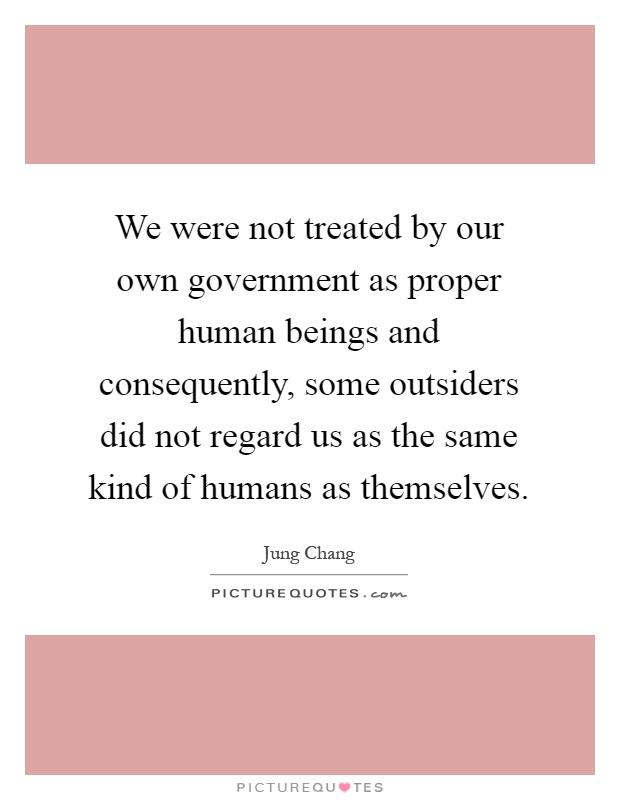 The Federal government has been called upon to urgently take a second look at the entire process of recruitment and training of personnel of the various law enforcement and security agencies as a step towards ensuring that the unbearable level of insecurity across Nigeria is nipped in the bud.
The Federal government has been called upon to urgently take a second look at the entire process of recruitment and training of personnel of the various law enforcement and security agencies as a step towards ensuring that the unbearable level of insecurity across Nigeria is nipped in the bud.This call was made by the spokesperson for the Federal Workers Forum, Comrade Andrew Emelieze.
''The government should take urgent steps to carefully look into the processes of recruitment, training and postings of those in uniform as a step towards reversing the worrisome and disturbing spate of insecurity. The government should take a second look on the processes that ensured that these personnle exhibit the different uniforms of law enofrcement and security agencies.
These trained personnel of the various uniformed agencies in Nigeria have continued, without stop, to engage in forgery, perjury, extrajudicial killings and corruption in all forms among so many other absurdities.
Why is this so?
Perhaps, Illiteracy and ignorance are the two major reasons, when the leadership is found wanting, then things go absolutely wrong.
-
Syndicate steals IBEDC service wires from residence in Ibadan
- By solomon2day
- On 18/12/2024
- In News
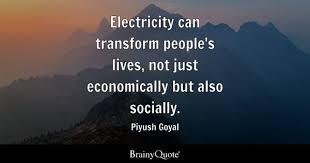
 A syndicate that specializes in the stealing of electric service wires from residential buildings now operates in Ibadan, Nigeria.
A syndicate that specializes in the stealing of electric service wires from residential buildings now operates in Ibadan, Nigeria.The criminal group comprising some unscrupulous elements in the Ibadan Electricity Distribution Company (IBEDC) co-opted financially indisposed individuals to give out vital information that would be of mutual benefit to both of them.
On Tuesday, 17 December, 2024, between 2:45 pm and 3:10 pm in the afternoon, a marketer and a technician, both workers of the IBEDC, stole the four service wires that supply electricity to the four apartments at No. 3 Kehinde Aderibigbe Street, Olorunsogo, Molete.
Before the ugly act, the criminals had sat down and strategized at a shoemaker's shop at No. 6.
The shoemaker had in turn entertained them.
After the act, the criminals, who brought along a ladder, made away with the stolen items while residents of the community watched with keen interest.
In recent times, cases of the theft of the DISCO's equipment and materials have become rampant.
-
Underage criminals burgle residence in Ibadan
- By solomon2day
- On 12/12/2024
- In News

 Young boys aged between 8 and 15 years old on Thursday burgled a residence in the Olorunsogo Molete Ibadan area of Oyo state.
Young boys aged between 8 and 15 years old on Thursday burgled a residence in the Olorunsogo Molete Ibadan area of Oyo state.The boys, led by one Imole Adewale, a junior secondary school student of Ibadan Grammar School, numbered about 12 and pretended to be playing football along Kehinde Aderibigbe Street before some of them broke into the apartments at No. 3 and made away with valuables running into hundreds of thousands of Naira.
Surprisingly, residents who own shops in and around the scene of the incident provided cover for the young criminals.
Before this time, parents and guardians in the community had repeatedly aided and abetted their children and wards in criminality.
Indeed, homosexuality, prostitution, drug addiction, and several other forms of social vices have become the order of the day as most of the young people have veered off the path of education.
Sadly, those in charge remain unperturbed despite the irredeemable damage that has been done to the young lives, even as lawlessness, indiscipline, and criminality have been adopted as daily ways of lives.
-
Cultists rob pedestrian in Ibadan
- By solomon2day
- On 05/12/2024
- In News

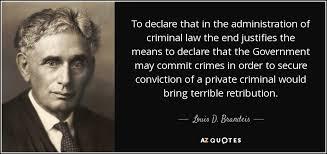 Cultists on Thursday afternoon attacked and dispossessed a gainfully employed Nigerian of his personal belongings and valuables.
Cultists on Thursday afternoon attacked and dispossessed a gainfully employed Nigerian of his personal belongings and valuables.The cultists, led by one diminutive hoodlum named Okunnu, numbered about 18 and operated from an events planner's shop at the Baptist Convention shopping complex, Scout Camp Junction, Challeneg/Molete road, Ibadan, Oyo state, Nigeria.
Acting under the influence of marijuana and other illicit substances, they attacked the innocent Nigerian and made away with all he had on him.
Despite the alarm raised by the robbery victim, bystanders who were complicit cheered the criminals.
Of worry is the role played by parents and guardians in crime, even as the general belief is that an unspecified number of law enforcement agents and government officials provide material and moral support for these criminals.
This informs the increasing rate of lawlessness, indiscipline, and criminality in many communities in the state.
Sadly, the feeble efforts of the state government to deal decisively with the outlaws have so far yielded no positive result.
-
A dehumanized mental psyche
- By solomon2day
- On 17/11/2024
- In Update with Solomon

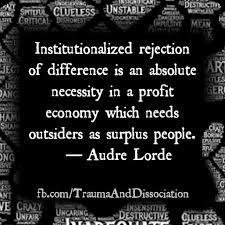 Nigerians have expressed visible worries over the activities of criminals operating in commercial motorcycles, vehicles with tinted glasses, vehicles with foreign plate numbers, and vehicles without number plates.
Nigerians have expressed visible worries over the activities of criminals operating in commercial motorcycles, vehicles with tinted glasses, vehicles with foreign plate numbers, and vehicles without number plates.They argue that most crimes in different parts of the country are committed through these motorcycles and vehicles and express surprise over the way the criminals beat the scrutiny of law enforcement agents along the road.
Innocent citizens who reside in Lagos, Ibadan, Benin City, Port Harcourt, Warri, Onitsha, Aba, Kaduna, Kano, and Abuja, among others, have continued to recount their tales of woe to whoever cared to listen.
Sadly, the law enforcement agents, saddled with the responsibility of ensuring law and order and the adherence to the road safety rules and regulations, have for long adopted a conspiratorial attitude, mainly because of the benefits that would accrue from aiding and abetting criminals.
Nigerians are now of the opinion that the laws of the land are either no longer functional or those in charge and the law enforcement agencies are deliberately sabotaging the enforcement of the laws for their self-centered motives.
A victim of the worrisome state of insecurity in Ibadan, Nigeria, who spoke incognito, reveals his experience.
‘’There is a beer parlor opposite the Iyanganku Magistrate; it is among the several shops that share the same fence with the police barracks. A door inside the beer parlor leads into the barracks. Visit the beer parlor and observe those who patronize the beer parlor, and you will agree that those who break the law have the blessing of the persons whose statutory functions include the protection of lives and property, he stated.
The general feeling is that some criminally minded law enforcement agents make use of criminals as proxies in carrying out their statutory functions, which has resulted in the harassment, intimidation, and arrest of unsuspecting citizens.
Of worry is the adopted official status of lawlessness, indiscipline, and criminality in different parts of the country.
Indeed, illiteracy and ignorance have also contributed significantly to the scheme of things as presently constituted.
The mental psyche of millions of Nigerians has been dehumanized and degraded; this has resulted in unthinkable occurrences.
These occurrences have consumed a sizable chunk of those in charge.
The widespread, uninhibited prevalence of lawless acts, to millions of Nigerians, is an indication that there is already a failure in leadership; with no visible remedy in sight for now.

-
The Steady Drift
- By solomon2day
- On 25/10/2024
- In Update with Solomon

 Those in security circles around the globe insist that a government that is responsible and accountable to its people does not give deadlines, ultimatums, and time limits to criminals.
Those in security circles around the globe insist that a government that is responsible and accountable to its people does not give deadlines, ultimatums, and time limits to criminals.They go on to attribute insurmountable insecurity in several countries to either the covert involvement of the government itself, its admirers, well-wishers, or agents.
These personalities stress that such a government must have identified and isolated fifth columnists within its ranks before it ever thinks of commencing a maximum cleansing of the criminals impeding good governance.
But sadly, this is not the case in Nigeria, as unfolding events have proven beyond reasonable doubt.
Nigerians have concluded that the government does not have ready solutions to the kidnappings, killings, and other violent crimes, while they daily pray for God’s intervention.
Even the security summits that have already been organized in the past several days by some interest groups, with some state governors in attendance, have been seen by Nigerians as mere jamborees.
With the continuous spate of kidnappings, killings, and other violent crimes not abating, Nigerians have come to the conclusion that the country is already in a state of emergency, though the government is yet to make such a declaration.
They attribute the agitation for the establishment of state police by a few self-serving individuals to the uninformed perspectives of these individuals.
Of worry are the great difficulties experienced by government praise singers and bootlickers to accept the hard fact that the present administration can no longer address the overwhelming insecurity in the land without reaching out to personalities and institutions it had hitherto ignored.
What is the situation?
The present administration continues in its condolence culture, for which the citizens have known it for.
For how long shall this go on? Nobody knows.
-
The Steady Drift
- By solomon2day
- On 25/10/2024
- In Update with Solomon

 Those in security circles around the globe insist that a government that is responsible and accountable to its people does not give deadlines, ultimatums, and time limits to criminals.
Those in security circles around the globe insist that a government that is responsible and accountable to its people does not give deadlines, ultimatums, and time limits to criminals.They go on to attribute insurmountable insecurity in several countries to either the covert involvement of the government itself, its admirers, well-wishers, or agents.
These personalities stress that such a government must have identified and isolated fifth columnists within its ranks before it ever thinks of commencing a maximum cleansing of the criminals impeding good governance.
But sadly, this is not the case in Nigeria, as unfolding events have proven beyond reasonable doubt.
Nigerians have concluded that the government does not have ready solutions to the kidnappings, killings, and other violent crimes, while they daily pray for God’s intervention.
Even the security summits that have already been organized in the past several days by some interest groups, with some state governors in attendance, have been seen by Nigerians as mere jamborees.
With the continuous spate of kidnappings, killings, and other violent crimes not abating, Nigerians have come to the conclusion that the country is already in a state of emergency, though the government is yet to make such a declaration.
They attribute the agitation for the establishment of state police by a few self-serving individuals to the uninformed perspectives of these individuals.
Of worry are the great difficulties experienced by government praise singers and bootlickers to accept the hard fact that the present administration can no longer address the overwhelming insecurity in the land without reaching out to personalities and institutions it had hitherto ignored.
What is the situation?
The present administration continues in its condolence culture, for which the citizens have known it for.
For how long shall this go on? Nobody knows.
-
Violent Crimes-The Position of Spectators
- By solomon2day
- On 18/10/2024
- In Update with Solomon
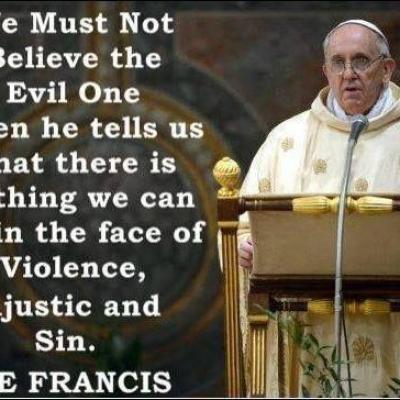

The consensus among Nigerians is that the arms build-up in different parts of the country has its background woven around the aspirations of actors in the socio-political scene in the land.
The arms build-up festers side by side with poverty, hunger, and brigandage, while the land has over time become fertile for trading in illegal arms with evil deeds as the major focus.
Indeed, state actors are familiar with the negative effects of injustice, inequality, nepotism, and favoritism, but are, sadly, handicapped by self-centered interests and incurable greed.
Interestingly, the competition for power and privilege has resulted in the loss of precious lives and the wanton destruction of the properties of innocent and harmless citizens. The debate among Nigerians now is on what constitutes the major functions of state actors.
The illegal influx of arms and ammunition has continued unabated through constitutional and unconstitutional channels with the active connivance of those who ought to be well-informed on security matters.
As violent crimes soar nationwide through the use of sophisticated weapons, Those-in-Charge have adopted the position of spectators to the amazement and chagrin of Nigerians.
Believers are not only friends of Jesus Christ, but are also friends of one another.
-
Law Enforcement: The Reactionary Approach
- By solomon2day
- On 28/06/2024
- In Update with Solomon

Impunity in cities, towns, and villages across Nigeria revolve around the fact that those responsible for law enforcement have been heavily compromised. Perhaps, this is the price to be paid to achieve self-centered goals with the coercive powers of Those-in-Charge in a depressed economy. The obsessive lure of power seems too attractive for those involved to be committed to democracy. An unspecified number of citizens are now used as proxies. The Nigerian society is now that of guns, terrorism, kidnappings, killings(for ritual purposes inclusive), contempt for the rule of law, and other violent crimes. The reactionary approach to law enforcement and insecurity has resulted in the massive traumatization of the psyche of Nigerians, considering the increasing rate of abductions and killings in the land.
In saner climes, the structure of the national security system was fumigated, overhauled, and remodeled. This singular action ensured the exit of those lacking in integrity and credibility. Sadly, today, state actors are not working towards leaving behind enduring legacies. Instead, their energy dissipation points to monetary inducement by erstwhile credible commentators in a desperate bid to cover up the rot in the midst of non-performance.
-
Violent Crimes- The State Approach
- By solomon2day
- On 25/06/2024
- In Update with Solomon
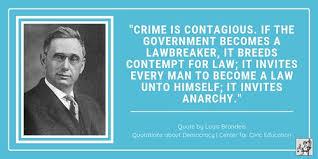 Adolf Hitler labeled the extermination of the Jews in Europe '' the final solution'', while the military dictatorship in Argentina, which embarked on an unprecedented killing of its citizens, code named the same ''The process of National Integration''. The activities of insurgents and armed herdsmen, which have claimed thousands of lives, are similar to the above-mentioned.
Adolf Hitler labeled the extermination of the Jews in Europe '' the final solution'', while the military dictatorship in Argentina, which embarked on an unprecedented killing of its citizens, code named the same ''The process of National Integration''. The activities of insurgents and armed herdsmen, which have claimed thousands of lives, are similar to the above-mentioned.Between 1976 and 1983, millions of citizens lost their lives in Argentina.
Death squads operating under secret circumstances and under the cover of the state murdered about 11, 000 people, which are now described as ''The Disappeared''. Two million people escaped persecution, while hundreds of babies born to ''The Disappeared'' were either sold, bartered or murdered.
Indeed, happenings in several states of Nigeria, including Benue, Taraba, Plateau, Kogi, Nasarawa and Kaduna, indicate that the government is fully aware of the insecurity, even as the killings continue.
This calls for concern.
On March, 23, 1976, General Jourge Videla, Head of the Argentine Army overthrew the government of Isabelita Peron, a former nightclub dancer.
No civilian government had completed its tenure, except for Juan Peron's first term in office. General Videla hinged his action on the chronic inflation and high rate of unemployment that trailed Isabelita's government.
However, in Nigeria, a retired Army General calls the shots, even though the country still experiences symptoms of economic recession, mass unemployment, corruption and insecurity.
The Ejecrcito Revolcionario del Pueblo(ERP) and the Montotneros, took to kidnapping and killings.
This plunged Argentina into crisis. In Nigeria, kidnappings and killings have gone on unabated. Political pundits put the blame at the doorstep of the present administration.
Nigerians are worried that the government has done nothing noticeable to ensure that the country does not slip into anarchy.
In 2009, the Defense Minister of Madagascar, Cecile Manorantha, resigned her appointment on the grounds that she would not continue to be a part of a government that kills its people.
Also, the people of Madagascar vigorously opposed the attempts by President Marc Ravalomanana to lease one million acres of their land in the south of the country to a Korean firm, Daewoo, for intensive farming.
The people have deep ties with their land and consequently view the President's action as a betrayal. The same scenario is playing out in Nigeria.
The insecurity in the land has made foreign investment impossible, while the disenfranchised and poor majority look to the gloomy future for reprieve.
-
The Resort to Lawlessness and Crime
- By solomon2day
- On 19/06/2024
- In Happenings
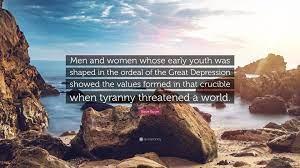 It is very disturbing that the lack of scale and coherence feature prominently in most of the initiatives to address the youth empowerment challenge in Nigeria. The population of youths who are gainfully employed in the critical economic and social sectors is very discouraging.
It is very disturbing that the lack of scale and coherence feature prominently in most of the initiatives to address the youth empowerment challenge in Nigeria. The population of youths who are gainfully employed in the critical economic and social sectors is very discouraging.Indeed, a sizable number of the population do not possess relevant digital skills to fit into these sectors. Indeed, a lot still has to be done to the psyche, value and attitude of the youths in this clime, to enable them to have access to decent work and productive employment.
The government at all levels have, over the years, failed to equip young Nigerians with globally sought-after skills to ensure that they are useful not only to themselves, but also to society.
In the absence of the interventions of the government and the Organized Private Sector(OPS), the youths have now embraced lawlessness, crime and all forms of criminality as credible means to ends and the political class are taking full advantage of theis development.
Note- A number of state governments have persistently covertly supported lawlessness, crime and criminality.
In many state capitals, the brazen and daring attitude of those who are believed to be the supporters and loyalists of these state governments is the major discussion in every mouth.
These sets of people trespass on landed properties which do not belong to them, the heavy presence of roadside car outlets and make-shift shops has become an eyesore on the environment.
The Nigeria Baptist Convention among several others has a lot to state about its landed property and trespassers situated at the Scout Camp area of Ibadan, Oyo state.
-
The Threats to Higher Education
- By solomon2day
- On 15/05/2023
- In News
 Higher institutions in the country have for long contended with the activities of students and non-students, which causes lawlessness, deviant behavior and criminality-on and off the various campuses in Nigeria.
Higher institutions in the country have for long contended with the activities of students and non-students, which causes lawlessness, deviant behavior and criminality-on and off the various campuses in Nigeria.Indeed, workers, petty traders and visitors have also been crucial participants in these problems, while the managements of the affected institutions feign ignorance or are oblivious of the problems.
Of worry, is the unwritten consent by some members of management for the despicable acts.
Indeed, homosexuality is now prevalent in these citadels of learning and, surprisingly, members of the communities have taken the abnormal to be normal.
Stakeholders in the education sector have for long been silent, but rather dissipated energy on the establishment of more institutions. Perhaps.
However, for the Dean of Students' Affairs, University of Ibadan, Prof. Adekeye Abiona, the University, does not have such issues.
''We don't have such issues at the University of Ibadan. Maybe it is in Agbowo, where there are Polytechnic and other students who are not our students. If you want more information, ask the law enforcement agents. There is no way non-students can get into our halls of residence. Besides, we have hall wardens. Students enter the halls with their identity cards. We are so strict about this, no one can get into the halls without permission. We don't have it in U.I, nobody has reported such.We have an Anti-Cultism Committee, we were at the College of Medicine for a social re-orientation program. The Center for Social Orientation(CSO) was established to take care of such vices. Our students will never indulge in that. There is what we call students' handbook. They have the matriculation oath. Our students are well behaved and we have the Students' Disciplinary Committee(SDC) to handle such issues,'' Prof. Abiona stated.
-
Law Enforcement : Groom Police Personnel to be Role Models-Prof. Olagoke
- By solomon2day
- On 17/11/2020
- In News
 Globally, the impression is that the Police force was established to maintain peace and order in society and also ensure the safety of lives and property. Sadly, several incidents around the world have indicated that the opposite is the case. This situation is worrisome and a source of concern to the citizenry. Interestingly, unscrupulous police personnel in connivance with members of the public, who are also members of communities in the country, extort innocent Nigerian by proxy.In this interview, the Founder, Spiritual Head, and Grand Imam of Shafaudeen-in-Islam Worldwide, Prof. Sabitu Olagoke opines that all police personnel should be groomed to be role models on the issue of the rule of law to enable effective enforcement of the laws of the land. Excerpts :
Globally, the impression is that the Police force was established to maintain peace and order in society and also ensure the safety of lives and property. Sadly, several incidents around the world have indicated that the opposite is the case. This situation is worrisome and a source of concern to the citizenry. Interestingly, unscrupulous police personnel in connivance with members of the public, who are also members of communities in the country, extort innocent Nigerian by proxy.In this interview, the Founder, Spiritual Head, and Grand Imam of Shafaudeen-in-Islam Worldwide, Prof. Sabitu Olagoke opines that all police personnel should be groomed to be role models on the issue of the rule of law to enable effective enforcement of the laws of the land. Excerpts :What ought to be the roles of the Nigeria Police Force in a democracy?
The structure of democracy vis-vis justice, policy-making, and implementation that should be inclusive to the term of equity. These are expected to give the society a stable polity in an environment of respect for the fundamental human rights of all without discrimination or socio-classification for the purpose of achieving the streak of sustainable development. Any alteration to this arrangement will constitute a threat to the security of the state and its prosperity. The extreme can lead to a state of anarchy. To be able to achieve maximally, police personnel from the lowest to the topmost ranks need to be properly trained in recognizing the state of the environment with all readiness to offer selfless service which must be sustainable to prevent a crack in the wall of the state. The people, generally, must equally be sensitized to see the police as their immediate neighbor. The roles of the Nigeria Police Force, therefore, must be clearly stated as defined and must be incorporated into the school curricula. For example, the prevention of crime is fundamental to the protection of lives and property. They must therefore be role models on the issue of the rule of law to be able to enforce it. The Police must be an embodiment of peace and must be trained not to be bullies, but humane and polite in going about the statutory charge of maintenance of peace and public order.It is unfortunate to note that the environment under which the Nigeria Police Force operates is a hostile one and the recruitment process is faulty. This is a set back for the police force because criminally minded people will easily join the force without detection for future havoc. Another problem that is equally intrinsic to the under-performance is government underfunding. Also, the environment of corruption and extortion has by polarization affected negatively the constitution and working operations of the police to the level of institutionalized corruption and extortion.The inadequate number of police personnel are shared among the state and the rich as most of them are attached to several political office holders and the elite, at the expense of the state.Police brutality and harassment of innocent citizens have made them become pawns of politicians, who sew or borrow police uniforms from them for the thugs to appear as government agents to deal with political opponents, maim and kill perceived enemies.
